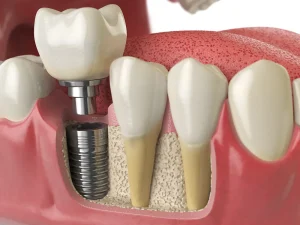Health Benefits of Zinc Supplements
3 min read
Close up of young Asian woman holding a pill bottle, pouring pills into palm of hand, with a glass of water on the side. Medicine, healthcare and people concept
Zinc is an essential mineral found throughout the human body. It aids in the function of the immune system and metabolism. It also plays an important role in wound healing and the sense of taste. While a varied diet can provide sufficient zinc levels, supplemental forms may be necessary for some individuals. Suitable sources include red meat, poultry, and fortified breakfast cereals. Supplemental zinc may also be used to treat a variety of health problems, including respiratory infections, acne, and diarrhea. However, it should be noted that high dosages of zinc may cause side effects. Using zinc supplements should only be done under the guidance of a qualified healthcare professional.
A study in Papua New Guinea found that zinc supplements helped reduce the incidence of malaria in children. The researchers also found that supplementation with zinc reduced the number of malaria episodes with high parasite concentrations by 68%. The results of the study suggest that supplemental zinc can reduce the risk of more severe malaria attacks and decrease health center visits. However, one study in West Africa found no difference between zinc supplementation and a placebo.
Studies have shown that zinc supplements can reduce the duration of diarrhea in children and adults. In addition, it is believed that zinc may reduce the risk of developing HIV and may have a positive effect on people with AIDS. Another study found that zinc supplementation decreased the incidence of opportunistic infections in HIV-positive adults.
Inflammatory bowel disease and bariatric surgery are two conditions that can lead to inadequate zinc levels. Patients with these conditions should take zinc supplements at least one hour apart from their medications. Also, thiazide diuretics may increase the excretion of zinc in the urine and reduce serum zinc concentrations.
Recent studies have shown that postnatal zinc supplementation can help improve motor and mental development in children. Two randomized controlled trials in Guatemala and India showed that babies with T2D who received 10 mg of zinc daily were more functionally active and vigorous than those who did not take the supplement. These studies also showed that zinc supplements had a positive effect on the levels of total and low-density lipoprotein cholesterol.
There are several types of zinc supplements available on the market. Some of them contain just zinc, while others contain zinc combined with other ingredients. Many multivitamin/multimineral formulas also contain zinc. These supplements also contain different forms of zinc, such as zinc citrate and zinc gluconate. The Supplement Facts panel of these products will declare the total weight of all the zinc-containing compounds.
Zinc has many benefits, including the ability to improve the duration of cold symptoms, support blood sugar levels, and improve the appearance of acne. It may also help reduce the risk of macular degeneration and heart disease. It is available in various forms, such as zinc gluconate, which is the most common form found in OTC products. For example, zinc gluconate lozenges are commonly used to treat colds. Another form, zinc sulfate, is used to improve acne.






